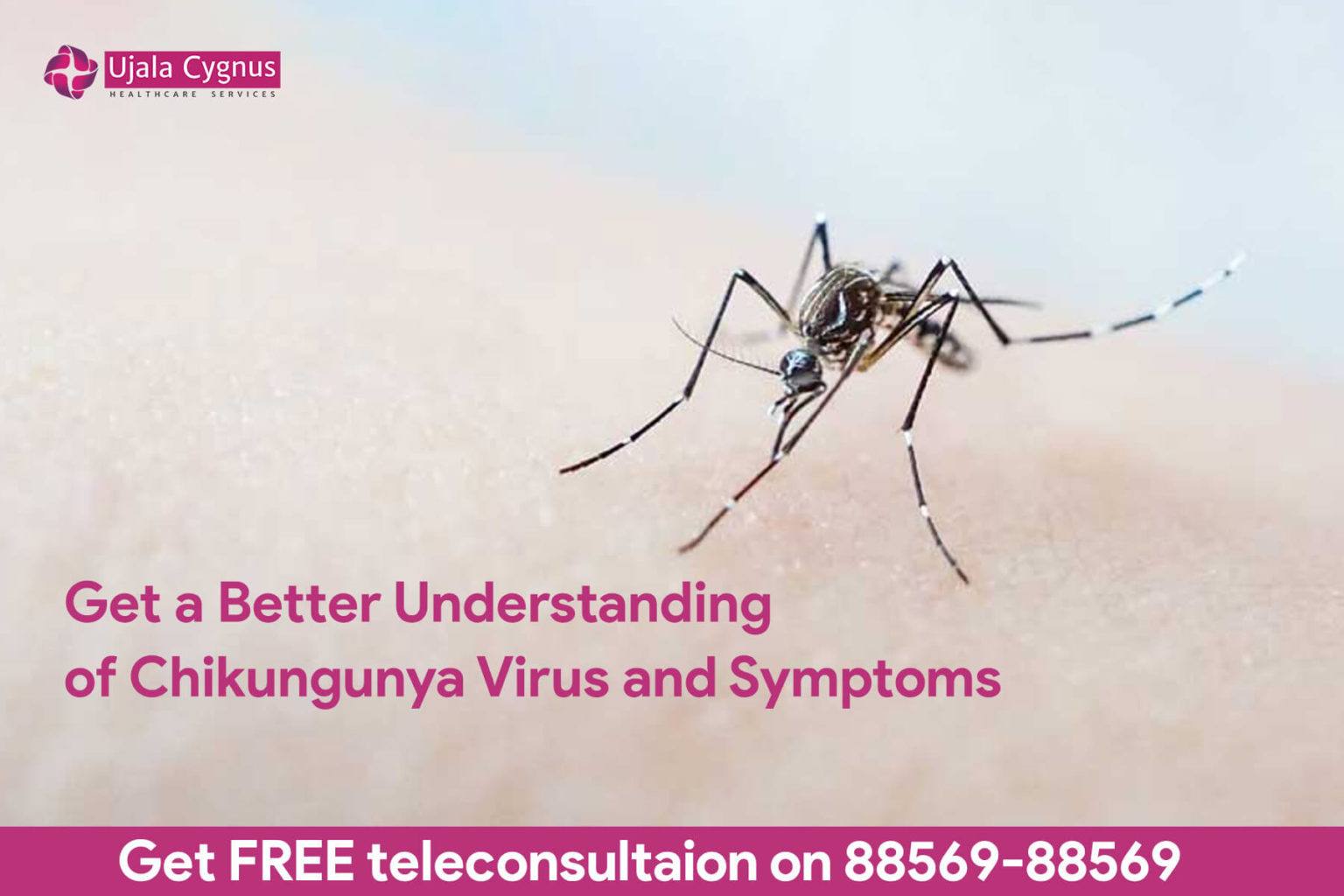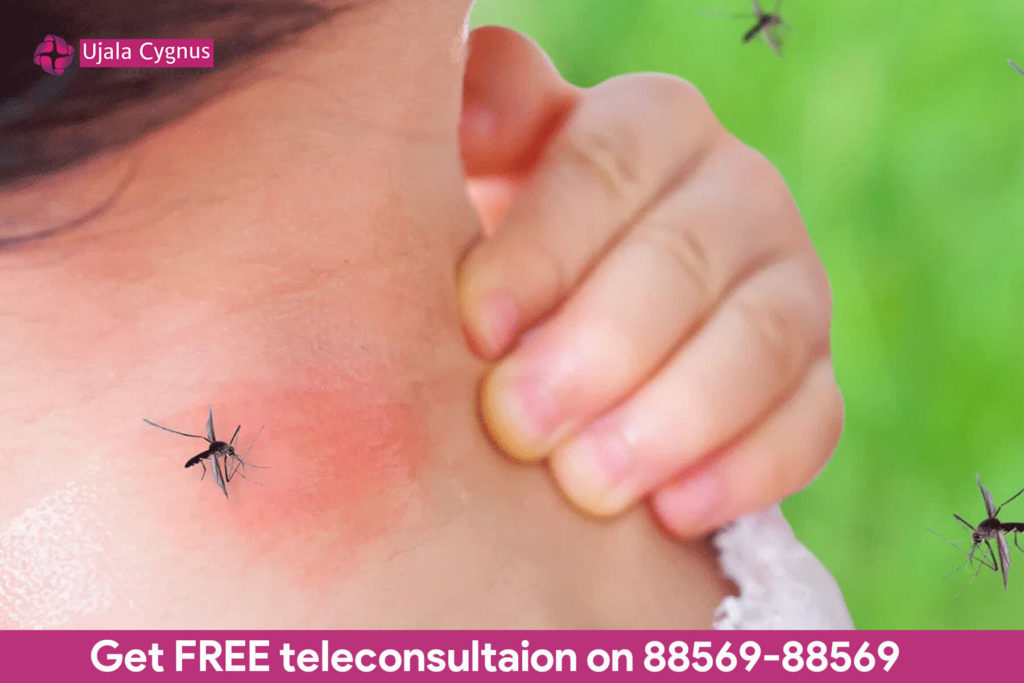Get a Better Understanding of Chikungunya Virus and Symptoms

People contract the Chikungunya virus after being bitten by an infected mosquito. Fever and joint pain are the most typical signs of infection. Headache, muscle soreness, joint swelling, or rashes are some of the other symptoms. Outbreaks have been reported in Africa, America, Asia, Europe, and the Caribbean, Indian, and Pacific Oceans. Infected tourists have the potential to transfer the illness to unaffected places. Currently, there is no vaccine or treatment available to prevent or treat chikungunya virus infection. Mosquito bite prevention is an effective way for travelers to protect themselves. Use insect repellent, long-sleeved shirts, and slacks, and remain in places with air conditioning or window and door screens when visiting nations where the chikungunya virus is present.
Chikungunya Virus Life Cycle
The chikungunya virus is transmitted to humans via the saliva of an infected mosquito. When an infected mosquito bites, the virus enters the bloodstream of the person. The virus attacks receptive cells found in the throat, nose, and mouth after it enters the circulation.
The virus multiplies in the bloodstream and spreads throughout the body. Symptoms appear two to twelve days after being bitten by a mosquito. Chikungunya fever is marked by severe joint pain, a sudden onset of fever, and rashes on the skin.
Mosquito Stage
When a mosquito bites an infected person, the virus enters the mosquito’s body. It then replicates in the mosquito’s ovary, midgut, neural tissues, and fat. The virus then replicates and passes to the mosquito’s salivary glands. When an infected mosquito bites another person, the virus is passed on.
Transmission Cycles of Chikungunya Disease
The enzootic cycle and the emergent epidemic cycle are the two transmission cycles of Chikungunya disease.
In most cases, the enzootic cycle occurs in Africa. Vectors include Aedes furcifer, Aedes taylori, Aedes africanus, and Aedes luteocephalus. Aedes furcifer, a likely enzootic vector, has been observed in human villages, where it is thought to transmit the virus from monkeys to humans.
Chikungunya virus can be spread through an urban transmission cycle including only Aedes aegypti and Aedes albopictus, as well as human amplification hosts. Human exposure to mosquito transmission is significant as a result of this epidemic cycle. It’s ideal for transmitting epidemics. Adult females prefer to feed on humans, and during a single gonotrophic cycle, they may take many partial blood meals. They prefer to lay their eggs in artificial containers as larval sites, and the rest within dwellings with easy access to human hosts. High-titer viremias are produced by humans and last for four days after symptoms develop.
Chikungunya Symptoms
The incubation period includes the time between being infected with the Chikungunya virus and experiencing symptoms. It could take anywhere from one to twelve days. On day two or three, the fever usually appears.
Fever, chills, nausea, vomiting, joint pain, and headache are some of the first symptoms of chikungunya. The patient usually has a temperature of 100 to 104 degrees celsius. Rashes accompanied the symptoms, which come suddenly.
Chikungunya-related deaths are rare.
The most common physical symptoms of Chikungunya are as follows:
- Conjunctivitis: This patient usually suffers from Conjunctivitis (redness in the eye).
- Headache: A severe and regular headache is a common Chikungunya symptom that can last for days at a stretch.
- Serious Joint Pain: This type of pain is common, and it gets worse as time goes on. The joints might swell and cause severe pain.
- Rashes appear on the limbs and trunks: Rashes can appear all over the body and return on a regular basis.
- Bleeding: People who have chikungunya are at significant risk of bleeding.
The clinical symptoms of chikungunya in children are as follows:
- Dysentery
- Retro-ocular pain
- Vomiting
- Meningeal disorder
The majority of patients are feeling much better within a week. Joint pain can be severe and crippling, and it can last for months.
People with medical disorders such as high blood pressure, diabetes, or heart disease, as well as newborns infected around the time of birth, are at risk for more severe disease.
After being infected, a person is likely to be protected from future infections.
Frequently Asked Question ( FAQs)
1. Why chikungunya causes joint pain?
We demonstrated that cells can survive CHIKV infection using our reporter system and these cells contain the majority of the persistent RNA. This method will be beneficial in studying the mechanisms underlying chronic disease, as many feel that this persistent RNA contributes to chronic arthritis.
2. What are the long-term consequences of chikungunya?
The majority of patients had polyarthralgia with symmetrical joint involvement. Atypical signs, such as severe depression with suicide attempts, significant weight loss, and severe hair loss, were found in some patients with prolonged arthralgia, and some patients still suffered from severe joint pain.
3. What is the duration of the chikungunya virus stay in the human body?
Most people recover completely, with symptoms disappearing in three to ten days. Joint discomfort can last for months or even years in some people.
4. Who is susceptible to chikungunya?
Neonates exposed intrapartum, older adults (> 65 years), and people with underlying medical disorders are all at risk for serious disease (hypertension, diabetes, or cardiovascular disease).
5. What occurs when you get chikungunya?
Humans are infected with the chikungunya virus after being bitten by a mosquito. It causes a high fever as well as joint pain. The symptoms are rarely fatal, although they can be severe, long-lasting, and incapacitating. Once thought to be a tropical disease, instances have already been documented in more than a quarter of the world’s countries.
Ujala Cygnus Healthcare Group has 16 hospitals. Kanpur, Rewari, Kashipur, Varanasi, Sonepat, Panipat, Kurukshetra, Nangloi in Delhi, Rama Vihar in Delhi, Kaithal, Bahadurgarh, Karnal, Moradabad, Haldwani, and Agra. You can book an appointment at your nearest Ujala Cygnus Hospital for any health issue treatment. For any query, you can give a missed call on 88569-88569 and get a free consultation over the phone.
